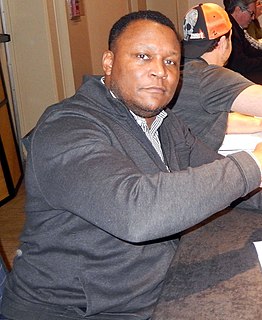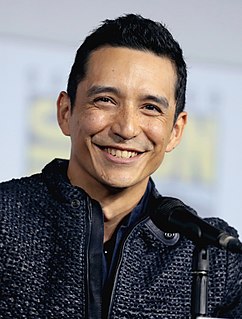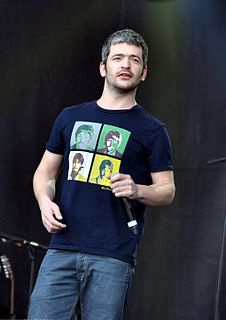A Quote by Barry Sanders
My mother was a huge influence on me. She was a living example of what a Christian should be. Her conviction, her discipline. She would rather see other people happy than herself.
Related Quotes
In my earliest of years, my mother was a huge force in my life. She was for all intents and purposes, a single parent. My father had abandoned us. He was an alcoholic and a physical abuser. My mother lived through that tyranny and made her living as a domestic worker. She was uneducated but she brought high principles and decent values into our existence, and she set lofty goals for herself and for her children. We were forever inspired by her strength and by her resistance to racism and to fascism.
There was a warmth of fury in his last phrases. He meant she loved him more than he her. Perhaps he could not love her. Perhaps she had not in herself that which he wanted. It was the deepest motive of her soul, this self-mistrust. It was so deep she dared neither realise nor acknowledge. Perhaps she was deficient. Like an infinitely subtle shame, it kept her always back. If it were so, she would do without him. She would never let herself want him. She would merely see.
Once upon a time there was a girl who wanted to put her fist through a mirror. She would tell everyone it was so that she could see what was on the other side, but really, it was so that she wouldn't have to look at herself. That, and because she thought she might be able to steal a piece of glass when no one was looking, and use it to carve her heart out of her chest.
My mother didn't feel sorry for herself, she was left with no child support, no alimony at a very young age, with a child to raise, a high school education and she just figured it out. She didn't complain, she didn't rely upon government, she relied upon her own skill set, her own self confidence, her own drive in moxie and her own duty to me and her and she relied upon her family and her faith.
Her library would have been valuable to a bibliophile except she treated her books execrably. I would rarely open a volume that she had not desecrated by underlining her favorite sections with a ball-point pen. Once I had told her that I would rather see a museum bombed than a book underlined, but she dismissed my argument as mere sentimentality. She marked her books so that stunning images and ideas would not be lost to her.
The adolescent does not develop her identity and individuality by moving outside her family. She is not triggered by some magic unconscious dynamic whereby she rejects her family in favour of her peers or of a larger society.... She continues to develop in relation to her parents. Her mother continues to have more influence over her than either her father or her friends.
Perhaps I will die too, she told herself, and the thought did not seem so terrible to her. If she flung herself from the window, she could put an end to her suffering, and in the years to come the singers would write songs of her grief. Her body would lie on the stones below, broken and innocent, shaming all those who had betrayed her. Sansa went so far as to cross the bedchamber and throw open the shutters ... but then her courage left her, and she ran back to her bed, sobbing.
Lastly, she pictured to herself how this same little sister of hers would, in the after-time, be herself a grown woman; and how she would keep, through all her riper years, the simple and loving heart of her childhood: and how she would gather about her other little children, and make their eyes bright and eager with many a strange tale, perhaps even with the dream of Wonderland of long ago: and how she would feel with all their simple sorrows, and find a pleasure in all their simple joys, remembering her own child-life, and the happy summer days.
She emptied herself of Fabio and of herself, of all the useless efforts she had made to get where she was and find nothing there. With detached curiosity she observed the rebirth of her weaknesses, her obsessions. This time she would let them decide, since she hadn't been able to do anything anyway. Against certain parts of yourself you remain powerless, she said to herself, as she regressed pleasurably to the time when she was a girl.
Well, when Eleanor Roosevelt's mother dies, she goes to live with her Grandmother Hall. And her Grandmother Hall is in mourning. She's in widow's weeds. She's in her 50s, but appears very old. And she's exhausted from raising rather out-of-control children. Her favorite daughter, Anna, has died (Eleanor's mother), and she has living at home two other sons, Vallie and Eddie. And they are incredible sportsmen, incredible drinkers, out-of-control alcoholics.
My mother’s been living alone for over ten years. She gets up at six every morning. She makes herself a coffee. She waters her plants. She listens to the news on the radio. She drinks her coffee. She has a quick wash. An hour later, at seven, her day is over. Two months ago a neighbour told her about your blog, and she asked me to buy her one of those thingummyjigs – by a thingummyjig she meant a computer. And since then, thanks to your trimmings, your ribbon bows, your tie-backs for curtains, she’s rediscovered the joys of life. So don’t tell me you don’t know any answers.






































